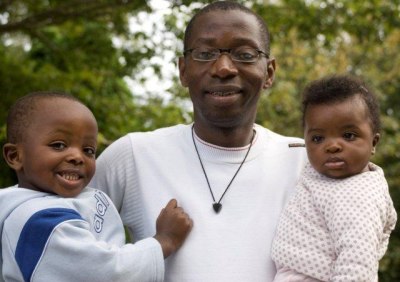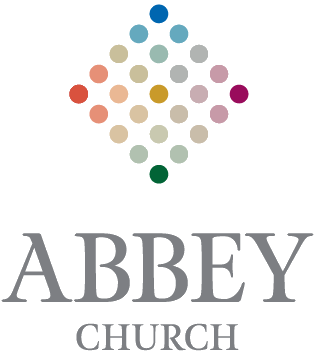- What Parenting is
- Preparing for Parenting (as a ‘Sphere of Influence’)
- Continuing in Parenting
- Education & Spiritual Formation
- Empty-nest Syndrome
- Grand-parenting
- Infertility, adoption and other scenarios

What Parenting is
It seems too obvious to ask, ‘What is parenting?’ yet as soon as we ask the question we are alerted to its many dimensions. The most obvious is giving birth to and then nurturing a child or children to adulthood. But there are parents who foster, parents who adopt, grandparents who raise children, single parents, separated parents, divorced parents with access, parents who are denied access… No matter the diversity of social settings, our society regards parenting as laudable, challenging, fulfilling, expensive and necessary. Children must be protected, provided for, educated, trained and valued. The parent/child relationship has gone through a number of phases in history with the child relegated to the role of possession or slave, or raised to the level of equal ‘mini-adult.’ We often assume that our own upbringing and our own age is typical of how parenting has always been, but that simply is not the case. Some people are now concerned that our ‘child-centred’ society has perhaps gone too far, that parents should be parents not friends or slaves. We also know that the family home has reduced in size as the ‘nuclear family’ has taken hold and as family planning has become available. We know that the family home, which ought to be a place of security, has become a place of abuse, neglect and stress for some. It is now commonplace to hear people say, ‘Parenting is the only thing for which you get no training’, and often enough that’s very true. People revert to what their own parents did or, for one reason or another they rebel against what their parents did.
Preparing for Parenting (as a ‘Sphere of Influence’)
Because parenting is all about raising the next generation who will go on to parent themselves this ‘sphere of influence’ is incredibly important, yet we seem to leave it to chance. And because we are faced with an almost infinite variety of family settings, it is hardly possible to talk about the way to parent. Perhaps we should take more seriously the African wisdom that ‘it takes a whole village to raise a child.’ If that is so, then we hope that our cross-generational, cross-cultural Cell Groups will prove a ready context for this. Indeed, we should take more seriously the idea of the family as ‘the little church’ and equip people to handle the Scriptures which cover just about every conceivable family situation.
Continuing in Parenting
As a general rule first-time parents really do want to do the best they can for their child, often reading books and magazines and attending parent classes. But as time goes on and demands increase; and other children come along, it’s often difficult to maintain this level. And there are so many different phases to negotiate: birth, early years, ‘terrible twos’, ‘tweenies’, teenage, young adult, student…in fact parents will tell you that they never stop parenting even when their ‘children’ have grown up and are parenting themselves. So continuing in parenting is a lifelong vocation.
Education & Spiritual Formation
Because formal education now dominates society in the West, we tend to equate parenting with educating. The two are of course closely linked and we can make the link provided we include informal training and formation in the wider sense. Furthermore, we must now prepare for a fundamental change in our education system. Until now there has been a close connection in Ireland between academic education and spiritual formation. Churches began formal education and subsequently opened schools primarily to train young people in the faith. As society has become more secular and policymakers are pressing for greater diversity in the Irish education system, so the Church/school link is undergoing further change, with some calling for a complete separation. No matter what ultimately happens it is still the case that the family is the most important place for introducing our children to faith in Jesus and to Christian discipleship. Our example and encouragement can inspire faith and nurture love for God and neighbour. Once again, our Cell Groups aim to assist in this regard.
Empty-nest Syndrome
Having said that parents never stop being parents, it is also true to say that our children grow up and move out of the family home to create their own home. That leaves us with a sense of ‘empty-nest syndrome’ as we struggle to come to terms with the new arrangement having spent twenty plus years intimately involved with our children’s lives. It always helps to have people around who have gone through that stage and who can offer help and assistance; and although our society doesn’t tend to do the extended family, our Church life is the ultimate extended family in which to belong. We might add that, as the economic situation has taken its toll, parents are finding a new challenge as children in their thirties are actually returning to the family home; so there’s always plenty to learn and to enjoy.
Grand-parenting
Another aspect of changes in society is the changing role of grandparents. For a time they were the occasional baby-sitters and the giver of treats. These days grandparents are likely to provide childcare facilities to enable both parents to work and pay the mortgage. This may be seventh heaven for some grandparents and a fate worse than death for others. And when people are living longer, more active lives, grandparents may have their own ideas as to how they wish to spend their time, energy and money once they have fulfilled their parental obligations. We can no more set a blueprint for grand-parenting than for parenting, but we do want to be a supportive community that openly considers these dynamics and helps all parties find a way through. And where some families are without grandparent figures, the Church can provide surrogates.
Infertility, adoption and other scenarios
This brings us to the immensely difficult and challenging scenarios of infertility, adoption, fostering, abortion and such like. Obviously we have not sufficient space here to consider these in depth, we simply wish to point out our awareness that things happen beyond our control and at variance with our desires. The advances in medical knowledge offer alternatives that our forbears could only dream of, but these in turn have raised a great many ethical dilemmas. At this point we wish to say that we are committed to supporting people whatever their circumstances. The Church may prove to be a therapeutic community, but it may also be the first point of contact for specialist help and expert intervention.
